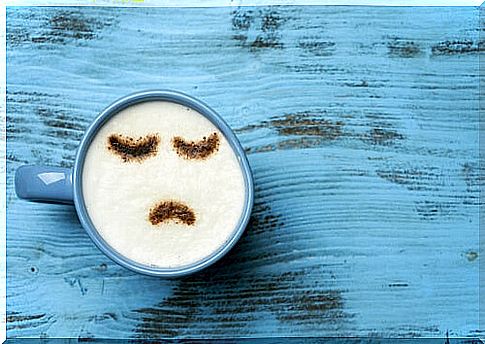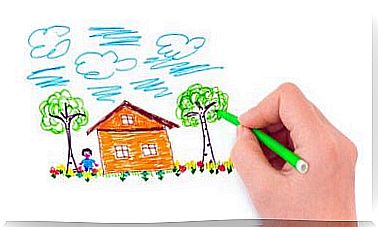Blue Monday: Saddest Day Of The Year?

Blue Monday or “Sad Monday” is the name that has been given, for years, to the third Monday of the year. According to psychologist Cliff Arnall, it is the saddest day of the year. This he attributed to the fact that after the Christmas excesses, many families have not recovered, financially or emotionally.
In addition, it seems that, little by little, we realize that the New Year’s resolutions that we raised were not realistic or at least not so easy to fulfill. At this point, we have already realized that the goals we had set ourselves to start the year are impossible or distant, so we also feel disappointed.
Now, is it true that there is a saddest day of the year? Are we more off the third Monday in January? Let’s go deeper.

Origin of sad Monday
As we mentioned, it was the psychologist Cliff Arnall, a researcher at the University of Cardiff (United Kingdom), who coined the term Blue Monday or Sad Monday.
In 2005, Arnall worked on a formula to determine what was the worst day of the year, on the occasion of an advertising campaign for the travel agency Sky Travel.
The proposed formula was the following:
- “C” is the climatic factor.
- “D” debts acquired during the holidays.
- “D” the money that will be collected at the end of January.
- “T” is the time elapsed since Christmas.
- “I” refers to the period since the last failed attempt to quit a bad habit, such as quitting smoking, or starting a new challenge.
- “M” are the motivations that remain.
- “NA” is the need to act to change life.
Taking all of these factors into account, Cliff Arnall concluded that the saddest day of the year is the third Monday in January.
So is there a sad Monday?
The result of the mathematical formula that resulted in Blue Monday was highly questioned. Even so, it is true that Blue Monday or sad Monday is a fact every year.
Social networks are filled with messages of encouragement to spend this “so depressing day.” Even the media echoes and some brands take advantage of the pull of this day to offer discounts in order to lift the spirits of consumers.
Although all these feelings are shared, it is unlikely to think that the entire population can become depressed at the same time each year.
The Blue Monday theory offers a concept of happiness reduced to very few factors ; at the same time it generalizes too much, since it assumes that all people are equally impacted by these factors.
For example, in January we may have less money and can’t travel, but we may be craving a bit of a routine after the holidays. In fact, the creator of this day must have thought something like this, since Arnall himself admitted some time later that his formula made no sense.

Dangers of Blue Monday
The Blue Monday has become a classic and is almost impossible not to hear the concept during that day, did not see the news on TV or comment on social networks.
Therefore, people may feel bad almost by imposition. We may have a typical Monday, like any other of the year, with its difficulties and its joys, but constantly hearing that it is a sad day can cause us to be conditioned or predisposed to look at the negative that happens to us throughout that day.
It is also important that we do not try to seek happiness all the time. In recent years, coaches, television, social networks, etc. they have imposed on us a model of compulsory happiness. However, that is impossible, apart from hurting us.
It is necessary to allow ourselves to be sad when we need it. In fact, sometimes it is the only way to heal certain wounds.
For all the above, it is important that we try to carry this Monday as well as possible and relativize the unforeseen events that may arise. In addition, the following guidelines to feel better can help us and not only for this day, but for all of the year.
- Sleep schedule : try to sleep 8 hours a day. If you have rested, you will feel more animated the next day and you will face the challenges that arise with a positive attitude.
- Exercise : Exercise at least twice a week. Sport reduces anxiety and increases your self-esteem.
- Diet : watch what you eat. Eating a balanced diet directly benefits your well-being. In addition, large dinners, alcohol and caffeine can promote insomnia.
- Friendships: cultivate your social network, talk to your loved ones, worry about them, be nice to your co-workers, neighbors, etc.
- Assertiveness: it is the ability to express what we want, think and feel while respecting others and also ourselves. If you are assertive, you will say what you want to do and you will reject proposals that you do not like out of respect, which will help your mood to increase.
- Pleasant activities : the basis of the mood is pleasant activities. It is proven that if you do things that you like, your mood at the end of the day will be more satisfactory, compared to those days that are more routine. Therefore, it is highly recommended to set aside time each day to do something that you like. For example, listening to music on the way to work, reading for a while before going to sleep, going for a walk, having coffee with a friend, etc.









